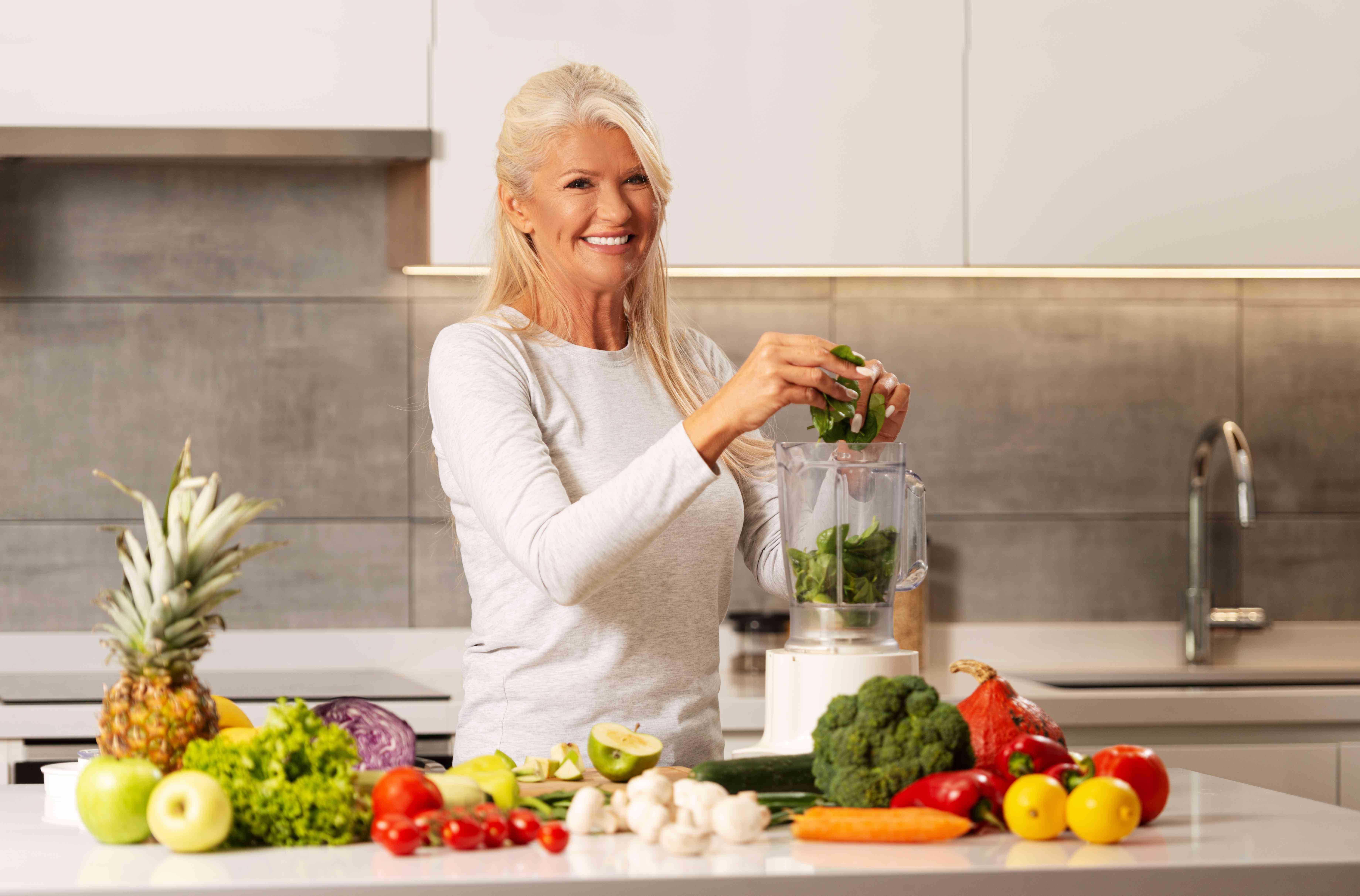

As you age, taking care of your health becomes increasingly important. A crucial aspect of staying healthy is proper nutrition. Just like middle-aged flexibility and youthful energy, nutrition for elderly individuals plays a vital role in maintaining overall well-being.
A healthy diet not only provides essential nutrients but also contributes to higher energy levels, disease prevention, and overall quality of life. As we grow older, our bodies undergo various changes that affect how we process food and absorb nutrients. This makes it even more critical to pay attention to what we eat.
In this article, we'll explore the foods that are best avoided for optimal health as you age gracefully. By understanding what's safe and what's not, you can make informed choices about your diet and take control of your well-being.
Excess sodium can be a sneaky culprit when it comes to overall health, especially for elderly individuals. Too much salt in your diet can lead to high blood pressure and increase the risk of heart disease. As we age, it becomes increasingly important to keep an eye on our sodium intake.
Reducing sodium doesn't mean sacrificing flavor or enjoyment in your meals. Here are some tips to help you cut back:
Read Labels: Pay attention to the sodium content listed on food labels. Aim for products that are low in sodium or have no added salt.
Cook at Home: When you cook your own meals, you have control over the amount of salt used. Experiment with herbs and spices to enhance the flavors of your dishes without relying on excess salt.
Choose Fresh Ingredients: Processed foods tend to be high in sodium, so opt for fresh ingredients whenever possible. Fruits, vegetables, and whole grains are naturally low in sodium and packed with nutrients.
Flavorful Alternatives: Instead of relying on processed foods for flavor, explore different herbs and spices like garlic, turmeric, or cumin to add depth and taste to your meals.
By being mindful of your salt intake and making small changes in your diet, you can reduce the risks associated with excessive sodium consumption.
As we age, it's crucial to be mindful of our sugar intake and its potential risks. Excessive sugar consumption can lead to weight gain, inflammation, and an increased risk of diabetes, posing challenges for managing weight and overall health. Chronic inflammation may contribute to conditions like heart disease and arthritis.
To reduce sugar intake, avoid sugary treats like cookies, cakes, and candies. Steer clear of sugary beverages such as sodas and fruit juices, which house hidden sugars. Instead, incorporate natural sweetness from fruits, which offer essential vitamins and fiber. For a touch of sweetness, use small amounts of healthier alternatives like honey or maple syrup.
By making smart choices and being mindful of sugar consumption, you can maintain better overall health as you age.
Understanding the difference between healthy and unhealthy fats is vital for maintaining optimal health as you age. Let's explore the world of fats and learn how to make wise choices.
Saturated fats, found in red meat, butter, full-fat dairy products, and processed snacks, are unhealthy and increase the risk of heart disease and high cholesterol. Limit your intake of these foods to protect your heart.
On the other hand, there are healthier fat options that benefit your body. Avocados, nuts, seeds, and fatty fish like salmon or sardines are rich in monounsaturated and polyunsaturated fats. These fats reduce inflammation and improve heart health.
Avoid unhealthy trans fats by staying away from fried foods and processed snacks. Opt for healthier cooking methods like baking or grilling. Reading food labels is crucial to identify hidden unhealthy fats.
By making wise choices about fat consumption, you can significantly impact your overall well-being.
Empty calories can be sneaky saboteurs when it comes to maintaining your health as you age. Alcohol and refined carbohydrates might provide temporary satisfaction, but they can leave you feeling sluggish and impact your overall well-being. Let's explore some mindful choices that can help you make better decisions about what you consume.
Alcohol may be a part of social gatherings or a way to unwind after a long day, but excessive intake can take a toll on your liver function and increase the risk of falls. It's important to be aware of your alcohol consumption and enjoy it in moderation. If you choose to indulge, opt for healthier alternatives like red wine or light beer.
Refined carbohydrates, like white bread, pasta, and sugary cereals can lead to weight gain and blood sugar fluctuations. Instead of reaching for these empty carb options, choose whole grain alternatives like whole wheat bread or brown rice. These options provide more nutrients and fiber that are beneficial for your digestive system.
Proper nutrition is crucial for the elderly, and this article has emphasized the significance of making informed food choices as we age. To summarize:
Excessive sodium can harm your health, leading to high blood pressure and heart disease. Reduce sodium by reading labels, cooking at home, and choosing fresh ingredients.
Older adults should limit sugar intake to avoid weight gain, inflammation, diabetes, and dental issues. Steer clear of sugary treats, sodas, and fruit juices.
Unhealthy fats like saturated fats found in fried foods and processed snacks contribute to heart disease and high cholesterol. Opt for healthier fats from avocados, nuts, seeds, and fatty fish.
Alcohol and refined carbohydrates provide empty calories that impact liver function and increase fall risk. Consume alcohol moderately and opt for whole-grain options instead of refined carbs.
Remember, everyone's nutritional needs are unique. Consult healthcare professionals or registered dietitians for personalized advice based on your specific dietary concerns or conditions.
Mindful eating as you age will ensure a vibrant life full of energy and vitality!
Disclaimer: The information provided in this article is for general informational purposes only. It is not intended as a substitute for professional advice, diagnosis, or treatment. Always consult with qualified healthcare professionals regarding any questions or concerns you may have about your health and nutrition. Reliance on any information provided by this article is solely at your own risk. We do not endorse or recommend any specific products mentioned in this article.
